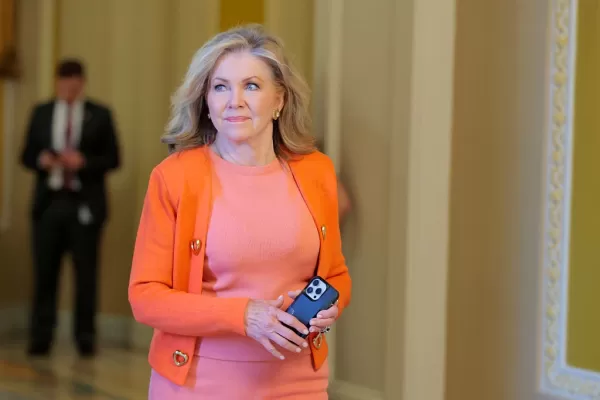US Senate Drops AI Moratorium from Budget Bill Amid Controversy

Senate Overwhelmingly Repeals AI Regulation Moratorium
In a rare show of bipartisan unity, U.S. lawmakers voted nearly unanimously Tuesday to eliminate a contentious decade-long prohibition on state-level AI regulation from landmark legislation originally passed during the previous administration. The decisive 99-1 vote followed intense debate about balancing innovation with consumer protections in the rapidly evolving AI sector.
Industry Leaders vs. Consumer Advocates
The provision, championed by Senator Ted Cruz (R-TX), had drawn support from prominent tech executives including OpenAI's Sam Altman and venture capitalist Marc Andreessen. These industry voices argued that allowing state-by-state AI rules would create compliance nightmares and hinder technological progress. However, opponents from both parties warned that stripping states' regulatory authority would leave citizens vulnerable to potential AI harms while concentrating power with major corporations.
Last-Minute Negotiations and Compromise
Senator Marsha Blackburn (R-TN) played a pivotal role in brokering negotiations, initially securing a reduction of the proposed moratorium from 10 to 5 years before ultimately joining Senator Maria Cantwell (D-WA) to propose complete removal of the provision. The dramatic reversal came after mounting concerns about the provision's impact on consumer protections and its controversial linkage to federal broadband funding. Political analysts note the overwhelming final vote signals growing skepticism about allowing industry to self-regulate advanced technologies with significant societal implications.
What Comes Next
With the moratorium lifted, states now regain authority to develop their own AI governance frameworks, potentially creating a diverse regulatory landscape across the country. Legal experts anticipate immediate activity in state legislatures that have been preparing AI bills, while tech companies face new compliance challenges operating across multiple jurisdictions. Observers suggest this vote may mark a turning point in how policymakers approach technology regulation following years of relatively hands-off federal oversight.
Related article
 Anthropic imposes stricter rate limits on Claude API, sparking developer backlash
Anthropic revealed today that it's implementing weekly usage caps for Claude subscribers, citing excessive around-the-clock usage primarily tied to its Claude Code platform.The new restrictions, effective August 28th, will complement existing five-ho
Anthropic imposes stricter rate limits on Claude API, sparking developer backlash
Anthropic revealed today that it's implementing weekly usage caps for Claude subscribers, citing excessive around-the-clock usage primarily tied to its Claude Code platform.The new restrictions, effective August 28th, will complement existing five-ho
 Sam Altman Launches Startup Aiming to Merge AI with Human Intelligence
The tech rivalry between Elon Musk and Sam Altman appears poised to expand beyond artificial intelligence into the emerging field of neural technology. Fresh reports indicate OpenAI's leadership is entering the brain-computer interface space, setting
Sam Altman Launches Startup Aiming to Merge AI with Human Intelligence
The tech rivalry between Elon Musk and Sam Altman appears poised to expand beyond artificial intelligence into the emerging field of neural technology. Fresh reports indicate OpenAI's leadership is entering the brain-computer interface space, setting
 OpenAI Appoints New Nonprofit Advisors to Oversee Governance
OpenAI has unveiled its inaugural advisory board for the nonprofit oversight committee, appointing four distinguished leaders: civil rights icon Dolores Huerta, educator Monica Lozano, public health expert Dr. Robert K. Ross, and technology advocate
Comments (0)
0/200
OpenAI Appoints New Nonprofit Advisors to Oversee Governance
OpenAI has unveiled its inaugural advisory board for the nonprofit oversight committee, appointing four distinguished leaders: civil rights icon Dolores Huerta, educator Monica Lozano, public health expert Dr. Robert K. Ross, and technology advocate
Comments (0)
0/200

Senate Overwhelmingly Repeals AI Regulation Moratorium
In a rare show of bipartisan unity, U.S. lawmakers voted nearly unanimously Tuesday to eliminate a contentious decade-long prohibition on state-level AI regulation from landmark legislation originally passed during the previous administration. The decisive 99-1 vote followed intense debate about balancing innovation with consumer protections in the rapidly evolving AI sector.
Industry Leaders vs. Consumer Advocates
The provision, championed by Senator Ted Cruz (R-TX), had drawn support from prominent tech executives including OpenAI's Sam Altman and venture capitalist Marc Andreessen. These industry voices argued that allowing state-by-state AI rules would create compliance nightmares and hinder technological progress. However, opponents from both parties warned that stripping states' regulatory authority would leave citizens vulnerable to potential AI harms while concentrating power with major corporations.
Last-Minute Negotiations and Compromise
Senator Marsha Blackburn (R-TN) played a pivotal role in brokering negotiations, initially securing a reduction of the proposed moratorium from 10 to 5 years before ultimately joining Senator Maria Cantwell (D-WA) to propose complete removal of the provision. The dramatic reversal came after mounting concerns about the provision's impact on consumer protections and its controversial linkage to federal broadband funding. Political analysts note the overwhelming final vote signals growing skepticism about allowing industry to self-regulate advanced technologies with significant societal implications.
What Comes Next
With the moratorium lifted, states now regain authority to develop their own AI governance frameworks, potentially creating a diverse regulatory landscape across the country. Legal experts anticipate immediate activity in state legislatures that have been preparing AI bills, while tech companies face new compliance challenges operating across multiple jurisdictions. Observers suggest this vote may mark a turning point in how policymakers approach technology regulation following years of relatively hands-off federal oversight.
 Anthropic imposes stricter rate limits on Claude API, sparking developer backlash
Anthropic revealed today that it's implementing weekly usage caps for Claude subscribers, citing excessive around-the-clock usage primarily tied to its Claude Code platform.The new restrictions, effective August 28th, will complement existing five-ho
Anthropic imposes stricter rate limits on Claude API, sparking developer backlash
Anthropic revealed today that it's implementing weekly usage caps for Claude subscribers, citing excessive around-the-clock usage primarily tied to its Claude Code platform.The new restrictions, effective August 28th, will complement existing five-ho
 Sam Altman Launches Startup Aiming to Merge AI with Human Intelligence
The tech rivalry between Elon Musk and Sam Altman appears poised to expand beyond artificial intelligence into the emerging field of neural technology. Fresh reports indicate OpenAI's leadership is entering the brain-computer interface space, setting
Sam Altman Launches Startup Aiming to Merge AI with Human Intelligence
The tech rivalry between Elon Musk and Sam Altman appears poised to expand beyond artificial intelligence into the emerging field of neural technology. Fresh reports indicate OpenAI's leadership is entering the brain-computer interface space, setting
 OpenAI Appoints New Nonprofit Advisors to Oversee Governance
OpenAI has unveiled its inaugural advisory board for the nonprofit oversight committee, appointing four distinguished leaders: civil rights icon Dolores Huerta, educator Monica Lozano, public health expert Dr. Robert K. Ross, and technology advocate
OpenAI Appoints New Nonprofit Advisors to Oversee Governance
OpenAI has unveiled its inaugural advisory board for the nonprofit oversight committee, appointing four distinguished leaders: civil rights icon Dolores Huerta, educator Monica Lozano, public health expert Dr. Robert K. Ross, and technology advocate





























